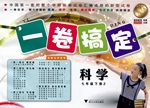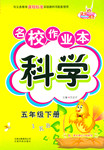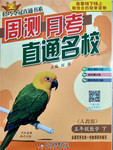题目内容
—I don't know if they the Great Wall next Sunday.—They won't go there if it .
A.visit;snows B.visit;will snow C.will visit;will snow D.will visit;snows
练习册系列答案
 一卷搞定系列答案
一卷搞定系列答案 名校作业本系列答案
名校作业本系列答案 轻巧夺冠周测月考直通名校系列答案
轻巧夺冠周测月考直通名校系列答案
相关题目
题目内容
—I don't know if they the Great Wall next Sunday.—They won't go there if it .
A.visit;snows B.visit;will snow C.will visit;will snow D.will visit;snows
 一卷搞定系列答案
一卷搞定系列答案 名校作业本系列答案
名校作业本系列答案 轻巧夺冠周测月考直通名校系列答案
轻巧夺冠周测月考直通名校系列答案